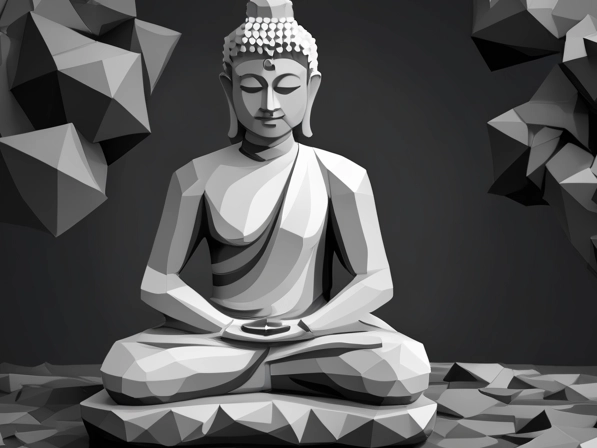“A human being is part of a whole, called by us the ‘Universe’, a part limited in time and space. He experiences himself, his thoughts, and feelings, as something separated from the rest, a kind of optical delusion of his consciousness. This delusion is a kind of prison for us, restricting us to our personal desires and to affection for a few persons nearest us. Our task must be to free ourselves from this prison by widening our circles of compassion to embrace all living creatures and the whole of nature in its beauty.”
Albert Einstein, 1954

What is Mindfulness?
Mindfulness comes from a 2500 year old Buddhist tradition and can be described as:
Paying attention to the present moment on purpose, without bias or judgment.
Mindfulness comes from a 2500 year old Buddhist tradition
In the Buddha’s very first teaching, one of the things he talked about was the Four Noble Truths.
An important but very condensed version of this would be:
- Suffering exists
- Suffering has a cause
- It can be overcome.
- There is a path to the liberation from suffering.
Mindfulness Meditation is a foundational practice in the path to this liberation.
Since then the benefits of Mindfulness have spread far beyond Buddhism.
Mindfulness isn’t about doing more.
It is about showing up, for yourself.
No judgment. No agenda.
No perfect posture. No need for a spiritual experience.
Just you, as you are, breathing with what is.
Whether you come seeking calm, curiosity, clarity, or comfort, you are welcome here.
The mindfulness practices shared here are secular. They do not depend on any religious belief, or on the absence of one.
At its heart, mindfulness is a way of training the mind to be more focused, less reactive, and more at ease with the world as it is.
And for those with a spiritual or religious path in mind, mindfulness can greatly support and deepen that connection.


The science is in!
Mindfulness meditation is the best way to give your brain a break!
Taking time for yourself, sitting with your feelings without having to react can lead to deeper insights into our lives.
Simply sitting with the world as it is can help us accept things we cant change.
What are some of the benefits of Meditation?

Clearing the table
Open awareness mindfulness meditation helps to clear the mental clutter, strengthening mental clarity and focus. By observing thoughts without attachment, you can create a space for fresh perspectives and problem-solving.

Compassion
Meditation cultivates empathy by encouraging non-judgmental observation of emotions and thoughts. It can promote an understanding of ourselves and others, creating a compassionate mindset.

Self reflection
Open awareness meditation provides a reflective space, allowing us to notice our inner thoughts and emotions. It supports self-awareness and personal growth by helping us to see ourselves as we really are.

Healing Process
By sitting in the world as it is with all of its imperfections large and small, open awareness meditation aids in the healing process. It allows us to approach our pain or trauma with a practiced familiarity, reducing triggering emotional events while building resiliency.

Creative Expression
Open awareness meditation stimulates an intuitive and creative mind by building mental confidence and clarity. With practice it allows you to "let go" and "be in the zone " at sporting events or open to explore new ideas and perspectives.

General mental health
This meditation form also contributes to overall mental well-being by reducing stress, anxiety, and depressive symptoms. It promotes emotional regulation, resilience, and a balanced mental state, fostering long-term mental health benefits.
